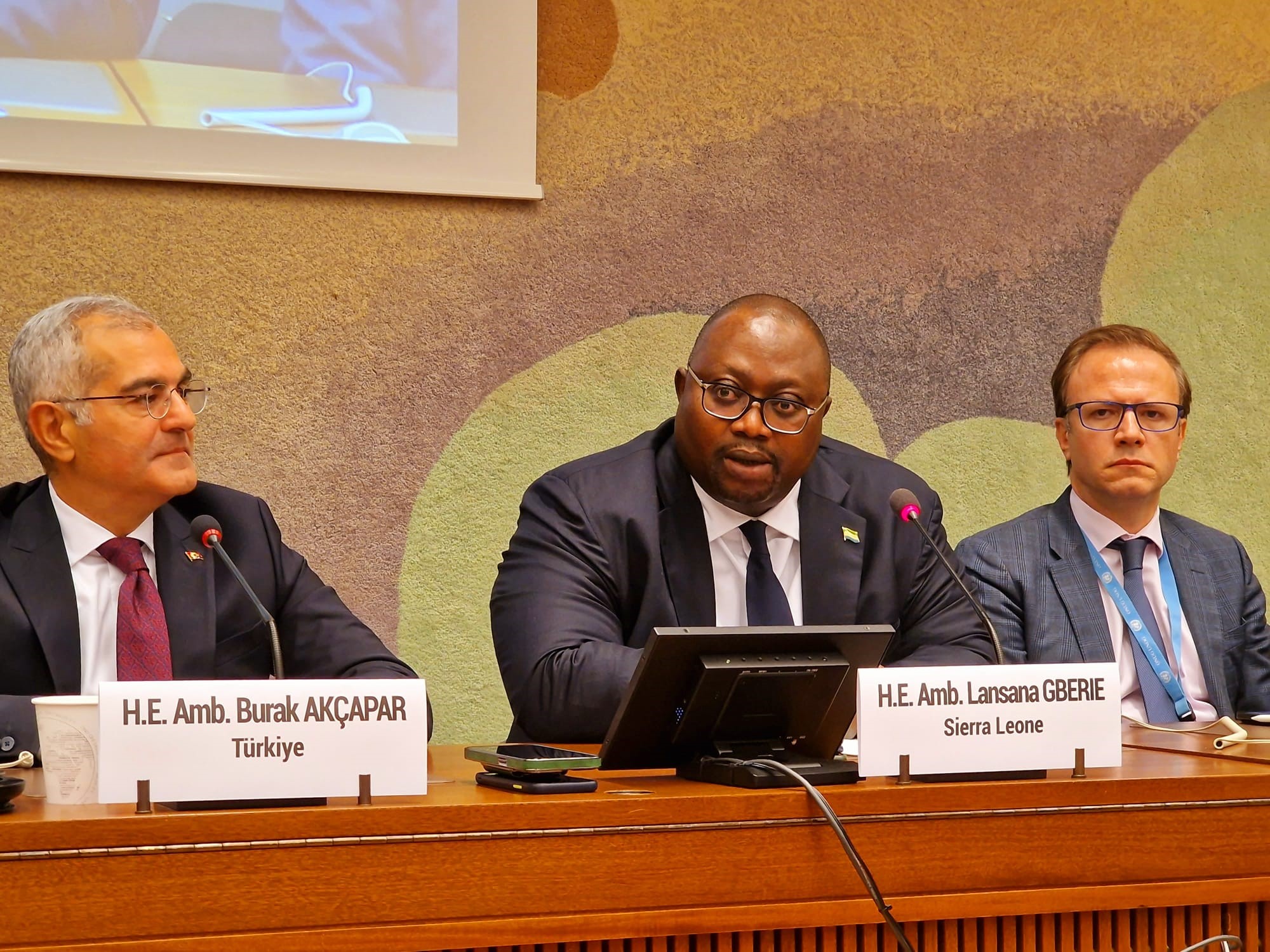AYV News, September 17, 2024

Sierra Leone’s Ambassador to Switzerland and Permanent Representative to the United Nations and other International Organisations in Geneva, H.E. Dr. Lansana Gberie, emphasised the urgent need for global action on toxic waste management and its gender-specific impact during the Toxics, Zero Waste, Women, and Human Rights at the side event at the 57th session of the Human Rights Council (HRC57).
Co-hosted by Sierra Leone alongside Türkiye, Suriname, and the UN Special Rapporteur on toxics and human rights, the event drew attention to the gendered consequences of waste mismanagement and called for immediate international collaboration to safeguard vulnerable communities.
In his address, Dr. Gberie underscored the findings of the 2021 Global Chemicals and Waste Indicator Review by the United Nations Environment Program (UNEP), which detailed the disproportionate impact of toxic waste on women and girls.
The report pointed to how exposure to harmful substances affects women more severely due to gender roles, particularly in low- and middle-income countries like Sierra Leone. “The processing of fabrics for traditional attire such as ‘gara,’ dominated by women in Sierra Leone, exposes them to harmful chemicals due to the lack of appropriate disposal systems,” he explained.
Dr. Gberie also described how rapid urbanization in Sierra Leone has led to the expansion of human settlements into areas formerly designated for waste disposal and industrial use.
This situation has overwhelmed solid waste management systems, leaving communities exposed to hazardous materials. Mining regions, in particular, have been heavily affected, with women often working in toxic conditions as they rework previous mining sites for residual minerals.
Dr. Gberie lauded the efforts of the First Ladies of Sierra Leone, Türkiye, and Suriname, who have been instrumental in pushing for greater global awareness of zero waste practices. In collaboration with the Geneva Environment Network, the UN Special Rapporteur on toxics and human rights, and other stakeholders, they aim to protect communities from further environmental degradation caused by mismanaged toxic waste.
He noted that recycling, while helpful, has not been enough to eliminate the threats posed by industrial and toxic waste.
Closing his speech, Dr. Gberie reiterated Sierra Leone’s commitment to working with international partners to enhance waste management systems and reduce the harmful effects of toxic exposure on women and communities. He called on all nations to act decisively to implement the 2030 Agenda for Sustainable Development, particularly in relation to achieving a healthy, livable environment for all.
The UN Women, UNEP, Geneva Environment Network, Global Cities Hub among others thanked Sierra Leone, Türkiye and Suriname for their leadership to convey the meeting, and urged for national and global action for our communities and environment.

